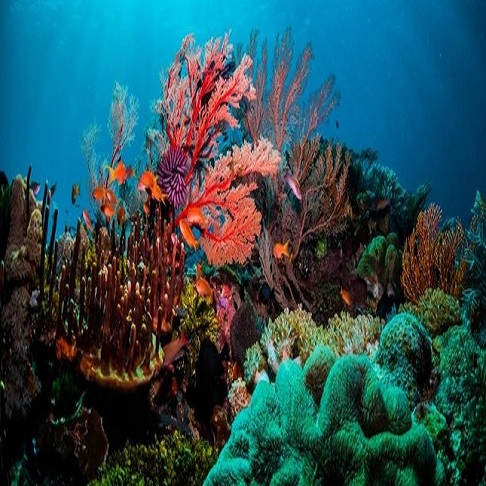Coalesce Research Group welcomes all to its “2nd International Conference on Aquaculture and Fisheries 2020” - ONLINE scheduled on November 09-10, 2020 with the theme “Advancements and Innovations in Aquaculture and Fisheries”.
Who can attend?
- Aqua culturists
- Aquaculture Technicians
- Marine Biologists
- Marine Scientists
- Researchers
- Academicians
- Students
- Industry Leaders
- Development Managers
- Aquaculture & Fisheries Departments
- Aquaculture Associations & Societies
- Business Entrepreneurs and related individuals
Why to Join?
- Meet Consultants & Influencers Face to Face
- Networking Opportunities
- Learning during a new Platform
- New Technologies
- Greater Focus
- Have Energy of similar people
- Investment on yourself & finally have a good time
Why Aquaculture and Fisheries: The Aquaculture and Fisheries sector isn't while not challenges, however, together with the requirement to scale back the proportion of fish stocks fished on the far side biological property, presently 33.1% to make sure that biosecurity and disease challenges are tackled with success and to take care of complete and correct national statistics in support of policy development and implementation. These and different challenges engendered blue growth initiative, integrated and multispectral approach to the management of aquatic resources geared towards maximizing the system merchandise and services obtained from the utilization of oceans, midland waters and wetlands, whereas conjointly providing social and economic edges.
Guidelines For Speakers
- Keep the number of slides in your Presentation to a minimum and follow the assigned slots.
- Please stop when signaled to do so by the Chair.
- Personal laptops should not be used unless in any unavoidable conditions.
- The Videos will not be recorded.
- Question Sessions, thanks and acknowledgement of the speakers will take place during the session or after completion of the session, so please stay until the end of the session.
Guidelines For Poster
- Each poster should be approximately 1x1 M in Size The title, contents, text and the author’s information should be clearly visible even from 1-2 feet.
- Present numerical data in the form of graphs, rather than tables.
- If data must be presented in table-form, keep it Simple to be easily understandable.
- Visuals should be simple, clear and bold. Avoid acronyms and mathematical notations as much as possible.
- Posters with 800-1000 words or less are perfect.
- Avoid submitting compactly packed, highly worded- count posters.
- Categorize your poster into subdivisions, e.g., Introduction, Methods, Results; Discussion, Conclusions, and Literature Cited.
- Use bright colors to enhance the better visibility Besides your project, you can also include future research plans or questions.
Opportunities for Conference Attendees
For Researchers & Faculty
- Speaker Presentations
- Poster Display
- Symposium hosting
- Workshop organizing
For Universities, Associations & Societies
- Association Partnering
- Collaboration proposals
- Academic Partnering
- Group Participation
For Students & Research Scholars
- Poster Presentation Competition (Winner will get Best Poster Award)
- Young Researcher Forum (Award to the best presenter)
- Student Attendee
- Group Registrations
For Business Speakers
- Speaker Presentations
- Symposium hosting
- Book Launch event
- Networking opportunities
- Audience participation
For Companies
- Exhibitor and Vendor Booths
- Sponsorships opportunities
- Product launch
- Workshop organizing
- Scientific Partnering
- Marketing and Networking with clients
Abstract Peer-review Process/Guidelines
- The Reviewing Committee of Conference ensures high-quality peer review process for all abstracts submitted.
- The decision of abstract acceptance will be judged by a panel of experts emphasizing whether the findings and / or conclusions are novel and make useful contributions to the field.
- The committee operates a single / double-blind peer review process for all the abstracts submitted, where both the reviewer and the author remain anonymous.
The following are the steps that each abstract of Conference undergoes during the process of peer review
- All submitted abstracts are reviewed by internal editorial team to ensure adherence to the conference scope and abstracts which have passed this initial screening are then assigned to the session chair / review committee for evaluation.
- Once the reviews have been received, the review committee decides to accept or reject a manuscript, or to request revisions from the author in response to the reviewers’ comments. If the decision tends to be minor revision or major revision, authors will be given 14 days to resubmit the revised abstract.
Criteria to be considered for Scoring
The abstract should be reviewed according to the following criteria:
- Originality of concept/approach and level of innovativeness
- Significance/impact/relevance to conference theme
- Quality of research design/theoretical argument
- Conclusions and interpretations of results
- Presentation style: Coherence and clarity of structure

